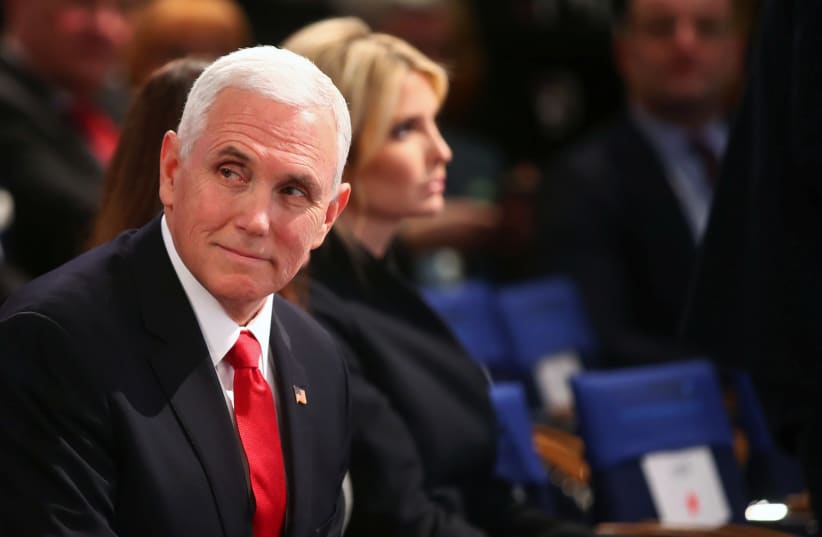MUNICH, Feb 16 - US Vice President Mike Pence pressed European countries on Saturday to withdraw from a nuclear deal between Iran and major powers, and urged them to be wary of using telecoms equipment supplied by Chinese provider Huawei.
"The time has come for our European partners to stand with us and with the Iranian people," Pence told the Munich Security Conference. "The time has come for our European partners to withdraw from the Iran nuclear deal.""The United States has also been very clear with our security partners on the threat posed by Huawei and other Chinese telecom companies," he said. "We must protect our critical telecom infrastructure and America is calling on all our security partners to be vigilant."
Pence accused Iran on Friday of antisemitism akin to the Nazis following his visit to the Auschwitz concentration camp in Poland that had strengthened his resolve to act against Tehran."We have the regime in Tehran that's breathing out murderous threats, with the same vile antisemitic hatred that animated the Nazis in Europe," Pence told reporters on Air Force Two before landing in Munich.He said that being in Auschwitz had made him reflect to "strengthen the resolve of the free world to oppose that kind of vile hatred and to confront authoritarian threats of our time."In a related development, US Vice President Mike Pence accused Washington's European allies of trying to break US sanctions against Tehran and called on them to withdraw from the Iran nuclear deal, during the Warsaw ministerial conference on Thursday."Sadly, some of our leading European partners have not been nearly as cooperative. In fact, they have led the effort to create mechanisms to break up our sanctions," Pence said.The US withdrew from the international accord last May. The other signatories, Iran, the European Union, Germany, France, Russia, the United Kingdom and China, remain in the deal.Pence accused the EU of setting up a scheme with Iran "to break American sanctions against Iran's murderous revolutionary regime.""It is an ill-advised step that will only strengthen Iran, weaken the EU and create still more distance between Europe and the United States," he said.The Warsaw meeting was attended by more than 60 nations, but major European powers Germany and France, who are members of the 2015 nuclear accord, refused to send their top diplomats.During his speech, Pence also invoked biblical visions for peace in the Middle East."On the foundation of that Abrahamic tradition we can find a firm foundation for all the people of the Middle East," said Pence."I think we would do well to look to a promise that was made to that man I referred to who made that journey so many centuries ago."Israel and Gulf Arab states made a rare public show of unity at the conference. But Great Britain and Italy were the only two EU nations in attendance. Others– including France, Germany, and the EU's high representative for foreign affairs– declined to send high level officials to the ministerial, protesting the tone of a conference they claimed was designed to undermine a nuclear deal with Tehran they continue to abide."Sadly, some of our leading European partners have not been nearly as cooperative," Pence said on Thursday. "In fact, they have led the effort to create mechanisms to break up our sanctions."Indeed, EU powers have been working on a mechanism that would help their businesses circumvent secondary US sanctions. The Iran nuclear agreement, brokered in 2015, called on parties to the deal to encourage local businesses to invest in the Iranian economy.But US President Donald Trump withdrew from the nuclear deal last year, reimposing all US sanctions on Iran that had been in place before the agreement– and then some. EU nations have recoiled at the policy.